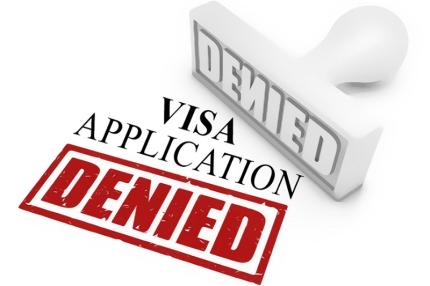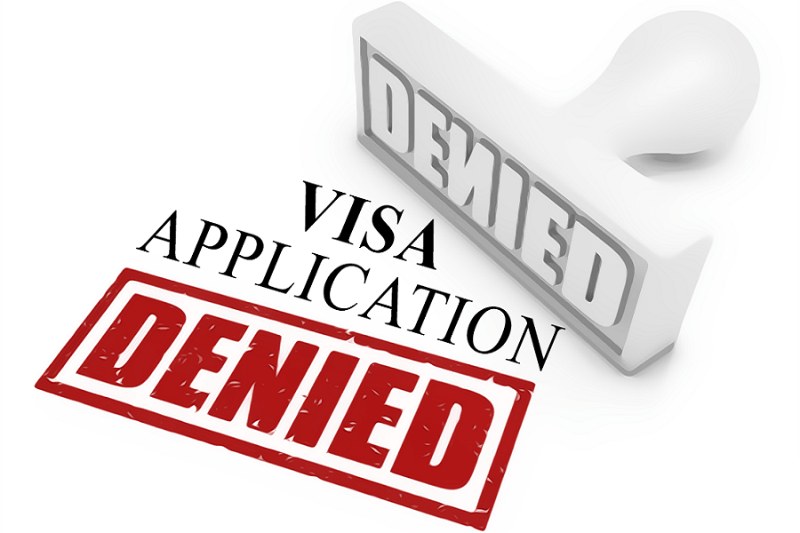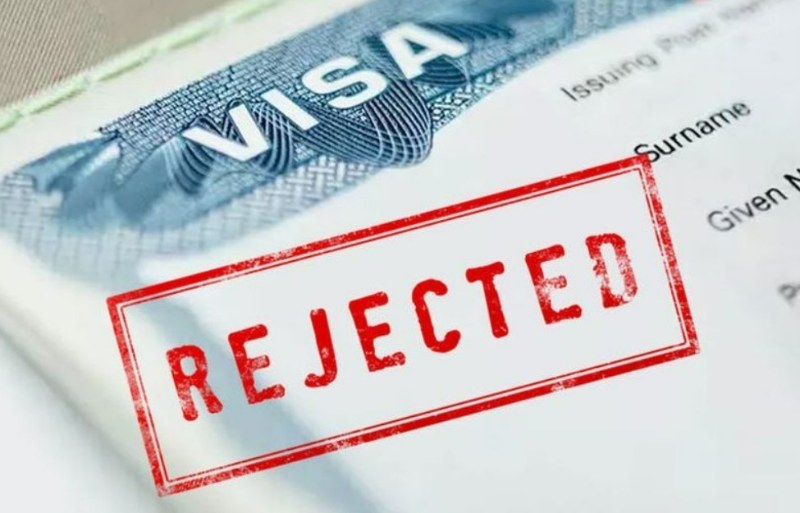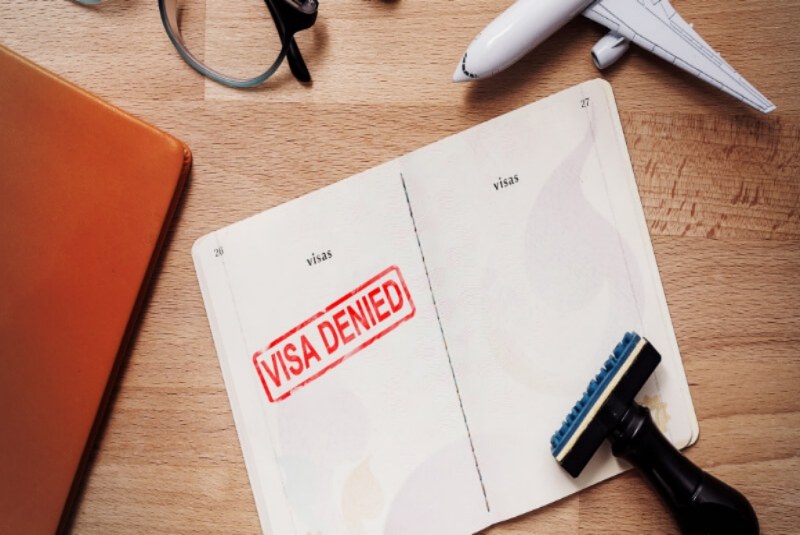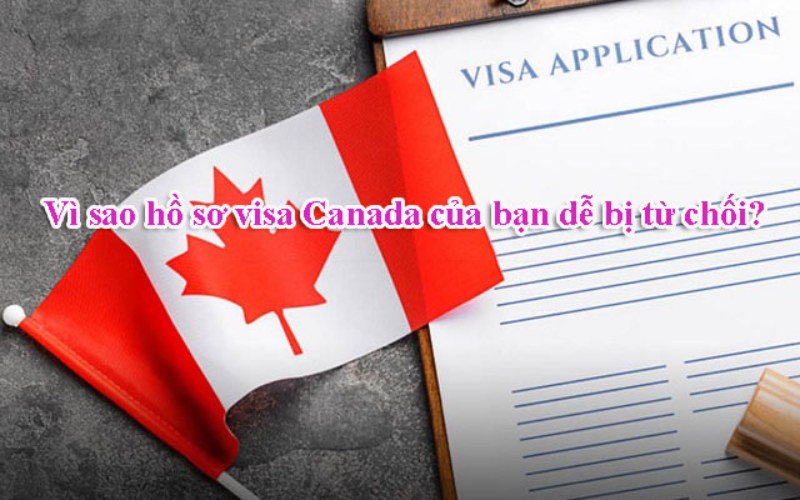Get free consultation
Fill out the form and we will contact you
Receiving a Canada visa refusal letter is something no one wants, especially after investing time and effort in preparing the application. Understanding the reasons and how to handle them can increase your chances of success when reapplying. This article will analyze the common reasons for a Canada visa refusal letter and provide detailed guidance on how to address them.
A Canada visa refusal letter is a document sent by IRCC via email or your GCKey account, explaining why your application did not meet the requirements. The letter usually includes:
A Canada visa refusal letter is a document sent by IRCC
Personal information: Your full name, application number, and the type of visa you applied for.
Reasons for refusal: Listed specifically, such as missing documents, failure to demonstrate the purpose of the trip, or financial issues.
Next steps: Information about appeal rights (if available) or suggestions to submit a new application.
Refusal letters are typically sent within 4–12 weeks after submitting the application, depending on the visa type and processing period. Understanding the contents of the letter is the first step in finding a solution.
IRCC evaluates visa applications based on strict criteria. Here are the most common reasons, based on updated information and practical experience:
Issue: Missing important documents such as passport, proof of financial support, travel itinerary, invitation letter, or improperly certified documents.
Example: Not providing a 3–6 month bank statement or submitting an unclear travel itinerary.
Solution: Carefully check the list of required documents on the IRCC or CVAC website. Ensure all documents are properly notarized, translated if necessary, and uploaded in the correct format (PDF, under 4MB).
IRCC evaluates visa applications based on strict criteria.
Issue: IRCC may doubt your intention to leave Canada after the visa expires, especially for tourist or short-term study visas.
Example: Vague travel itinerary or absence of an invitation letter from a school or employer.
Solution: Provide a detailed itinerary, round-trip flight tickets, hotel bookings, or an invitation letter from a reputable organization. Demonstrate that you have concrete plans and intend to return to Vietnam.
Issue: IRCC requires proof that you have strong reasons to return to your home country, such as stable employment, family, or propertyặc tài sản.
Example: Failure to provide an employment contract, marriage certificate, or property ownership documents.
Solution: Submit additional documents proving employment (employment contract, payslips), assets (property deeds, savings), or family relationships (children’s birth certificates).
Issue: Unable to demonstrate the ability to cover travel expenses or the duration of stay in Canada.
Example: Savings account under 10,000 CAD or bank statements not showing regular transactions.
Solution: Provide a savings account (at least 150 CAD per day of stay), 3–6 months of bank statements, or property documents (house, car). If financially sponsored, include a commitment letter from the sponsor.
Issue: Lack of international travel, especially to developed countries such as the US, Australia, or Schengen nations, causing IRCC to doubt the credibility of your application.
Solution: If you have traveled abroad, provide copies of old visas, entry stamps, or travel photos. If you lack travel history, emphasize other factors such as financial stability and ties to Vietnam.
Issue: Medical results show infectious diseases (e.g., tuberculosis) or a criminal record.
Solution: Complete treatment (if applicable) and undergo a re-examination at an IRCC-designated medical facility. For criminal records, provide explanation documents or a certificate of rehabilitation.
Issue: Incorrect information, inconsistencies between documents, or technical errors during online submission.
Solution: Carefully review all information before submitting. If necessary, seek a visa expert to check the application for consistency.
You can receive the refusal letter through:
Email: IRCC sends a notification to the email you registered when submitting your application.
CVAC center: If you applied in person, you can receive notifications via the CVAC (Hanoi: Hong Kong Tower, 243A Đê La Thành; Ho Chi Minh City: Cienco 4, 180 Nguyễn Thị Minh Khai).
To view the detailed reasons for refusal:
Log in to your GCKey account.
Go to “Check application status”.
Enter your Application Number or Unique Client Identifier (UCI).
Download the refusal letter (if available) or check the “Messages” section for explanations.
If the refusal letter does not specify the reasons clearly, you can request GCMS Notes (Global Case Management System) from IRCC. GCMS Notes provide detailed information about the application processing, but it takes approximately 30–40 days to receive and incurs a fee (around 5 CAD).
You can request GCMS Notes from IRCC.
Receiving a refusal letter does not mean you have no chance. Here are effective steps to take:
Carefully read the refusal letter to identify the specific reasons.
If necessary, request GCMS Notes to better understand IRCC’s decision.
Note the points that need improvement, such as providing additional documents, financial proof, or explanations for the refusal.
Appeal deadline: Within 30 days of receiving the refusal letter for temporary visas, or 60 days for permanent residence visas.
How to appeal:
Submit a letter to IRCC explaining why you believe the refusal decision is incorrect
Attach supporting documents to strengthen your case.
For permanent residence visas, you may appeal to the Immigration Appeal Division (IAD).
Note: Appeals are only effective if you believe IRCC made an error during processing (e.g., misinterpretation of information). If the application is weak, an appeal may not succeed.
In most cases, reapplying is a more viable option than appealing. When reapplying:
Thoroughly address the issues mentioned in the refusal letter.
Provide new documents, such as recent bank statements, detailed explanation letters, or additional travel history.
Honestly declare that you were previously refused and explain the corrective measures taken.
Timing: There is no strict time limit, but it is recommended to wait at least 1–2 months to improve the application.
If you are not confident, contact reputable immigration consulting firms for support. They can:
Analyze the reasons for refusal.
Prepare a new application with a higher approval rate.
Track the process and provide explanations to IRCC if necessary.
Prepare your application thoroughly: Check the list of required documents on the IRCC or CVAC website. Ensure all documents are notarized, translated if necessary, and uploaded in the correct format.
Clearly demonstrate the purpose of your trip: Provide a detailed itinerary, round-trip flight tickets, invitation letters from schools or employers, or a statement explaining the purpose of your visit.
Strengthen financial proof: Ensure your savings account has a sufficient balance (at least 10,000 CAD) and that your bank statements show consistent transactions.
Reinforce ties to Vietnam: Submit additional documents such as employment contracts, property ownership papers, or children’s birth certificates to demonstrate your intention to return.
Improve travel history: If possible, obtain visas to countries like Japan, South Korea, or Schengen nations before reapplying for a Canada visa.
Check health and criminal records: Ensure your medical examination results meet the requirements and that your criminal record is clearáp sạch.
Important tips to avoid a Canada visa refusal on your next application
Handling a Canada visa refusal letter requires a deep understanding of the immigration system and practical experience. Contact https://quoctichthuhai.com/ for free consultation and to maximize your chances of obtaining a Canada visa on your next application. Don’t let a refusal letter stand in the way of your dream to explore or settle in Canada!!
Fill out the form and we will contact you
